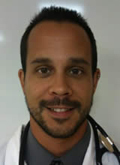
“Did you kill anyone during the genocide? Did you spend days hiding in a ditch to avoid the death squads? Or did you watch as your family was hacked to death? Did you profit financially from the war?”
I want to ask these questions of everyone I meet. I had never been to a country with the political past of Rwanda, and I wasn’t sure how I would react to the people here. Rwandans are affectionate, hospitable and proud people and I cannot fathom anyone whom I know participating in the genocide, but the questions still cross my mind.
In 100 days from April to June of 1994, more than 800,000 Tutsis were slaughtered by their Hutu neighbors under the guise of civil war. The international community sat on its hands while the genocide continued. The French even sent troops to protect the genocidaires from the advancing Tutsi army, Rwandan Patriotic Front (RPF), led by the future president. After the war, the Hutu Power movement that had started the genocide stayed in the Congo and terrorized the refugee camps. Their presence lent political justification to the slaughter of tens, and perhaps hundreds of thousands of innocent, noncombatant Hutus during the Congolese civil war of the late 1990s, at the hands of the RPF. History is written by the victors, and the sins of the RPF have been scrubbed from the record, and are never, ever spoken of inside of Rwanda.
With so much blood spilt on both sides, I can’t help but wonder where the people whom I know were during the genocide. A few suffer from post-traumatic stress disorder. They do not handle any stressful situation well, shouting and becoming angry in everyday situations. Many have problems with alcohol abuse, and some, while drinking, are known to confess to their role in the genocide. Other people are whispered about behind their backs because they were important figures in the RPF and are now politically well-connected leaders.
I cannot ask anyone I know about their ethnicity or what happened to them during the war. Even writing about the topic and using the words “Tutsi” and “Hutu” feels blasphemous. Rwanda has, at least superficially, achieved a post-ethnic society, and where making public references to ethnic identity is illegal. I have never heard the words Hutu or Tutsi spoken by a Rwandan in nearly 18 months here. While it feels totally normal in America to ask, “Is your family from Italy?” I do not know who is ethnically Hutu or Tutsi, even among close friends. The official response if someone is uncouth enough to ask is, “I am a Rwandan.”
“Where does your family live?” I asked a nurse, innocently enough.
“I am an orphan,” she replied. “My cousins live near Kigali.” In most of sub-Saharan Africa, orphans are largely the result of the AIDS epidemic. But in Rwanda, with low rates of HIV and a tumultuous history, genocide is the largest cause of those in their mid-20s being orphaned. The genocide is so ingrained in the culture that street children who were born after the massacre will claim that they are genocide orphans as they beg for money.
Some friends and their families escaped to the Congo or Uganda, but why? I wonder why a friend’s family stayed in the Congo or why he was raised there. Were his parents or relatives involved with Hutu Power? Or were they simply Hutu refugees who made a life for themselves abroad and decided to stay? Why was another friend of Rwandan blood born and raised in Uganda and now returned to Rwanda? Perhaps his family was Tutsi and they were chased out by pogroms prior to the genocide, and now they have returned since the peace of the last decade.
Genocide memorial week in April is the only time of year that Rwandans are allowed to publicly share their feelings on the topic. The year-long silence on the genocide is broken by wails and screams, hysterics and catatonia. There are daily testimonials, videos and community sing-alongs. The hospital fills with young women and men who suffer from “hysteria” — somatic manifestations of their psychological pain. They lie in bed silently, convulse with pseudo-seizures or speak in tongues. Many of them are too young to have any real memories from the genocide or to have experienced it at all, but the cultural memory infects them as well. During this week, the psychiatric team asks the patients questions about the genocide and their family, but it is still not permitted to discuss ethnicity. The closest anyone will come to discussing the genocide outside of April is to obliquely refer to having “lost family during the war.”
I met a man, presumably a Tutsi, who escaped the genocide with some family, but others were lost. When he returned from the refugee camp after a year, he found his Hutu neighbors living in the house that formerly belonged to his family. It was never spoken, but was understood that the neighbors had in some way participated in the slaughter of his family. Instead of seeking vengeance or living with animosity, he decided to share his land with this family, building a second house for his family on the same plot. Not only did they live side by side from then on, but he paid for the children of the Hutu family to go to high school and college, a genuine act of forgiveness.
When I first arrived in Rwanda, I was preoccupied with the question, “How did the genocide affect your life?” But after living among those who committed murder, and those who suffered at their hands, I try to be more like them, remembering the past but focusing on the future.
Vincent DeGennaro is an internal medicine doctor and a global public health specialist in the Department of Global Health and Social Medicine, Harvard Medical School. See his An American Doctor in Rwanda blogs.